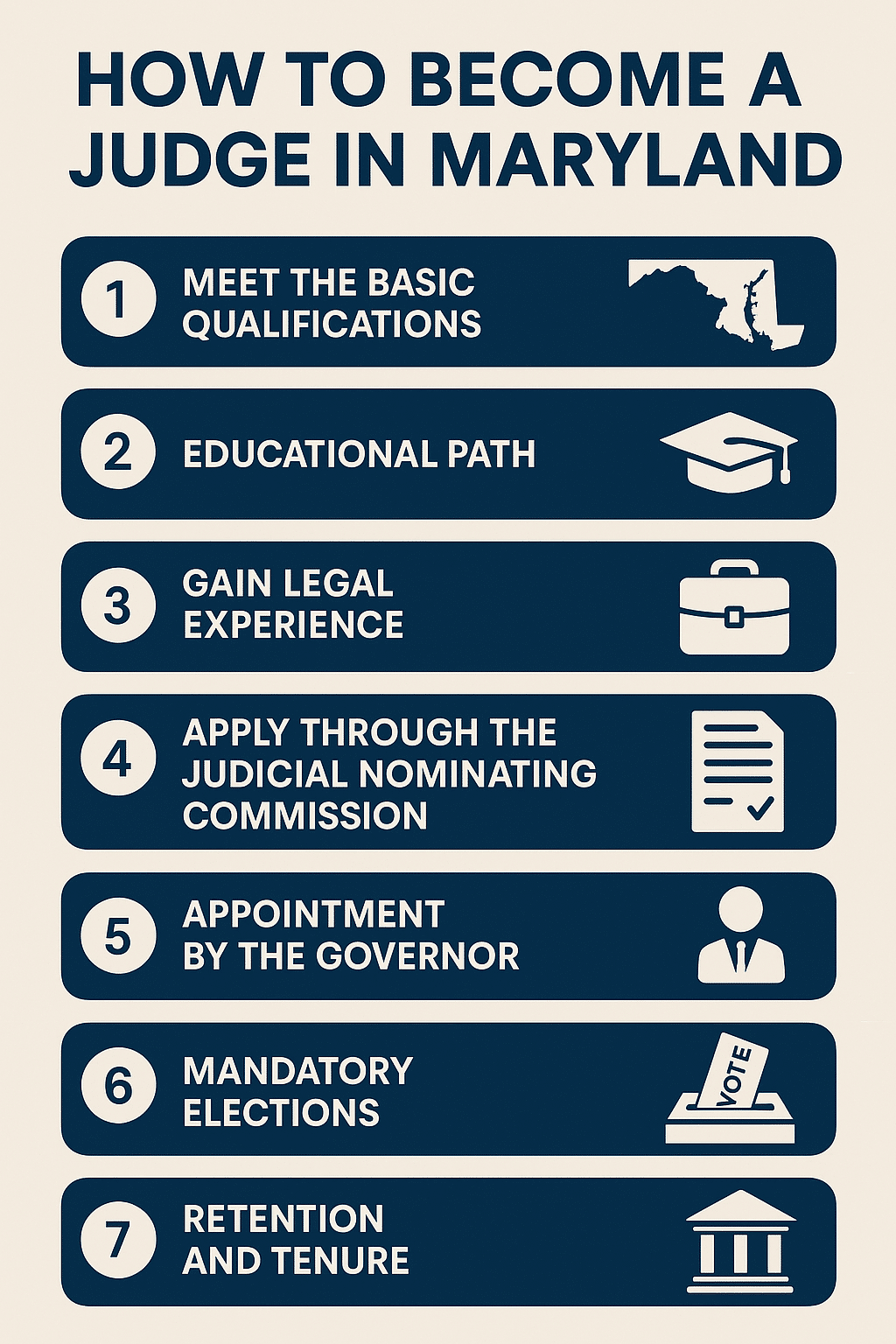
Becoming a judge in Maryland is one of the most respected roles in the legal system. Judges oversee trials, interpret the law, and ensure fairness in courtrooms across the state. If you’ve ever wondered how to become a judge in Maryland, the process involves education, experience, and a rigorous appointment and election process. Below, we break down the steps and requirements.
Basic Qualifications for Judges in Maryland
Before you can serve as a judge, you must meet certain legal and residency requirements. A judicial candidate must:
- Be a U.S. citizen
- Be a Maryland resident for at least five years
- Reside in the county or district of the court for at least six months before appointment
- Be at least 30 years old
- Be a licensed attorney in Maryland and a member of the Maryland Bar in good standing
These requirements apply to judges in the District Court, Circuit Court, Court of Special Appeals, and Court of Appeals.
Education and Legal Training
Like other states, Maryland requires judges to have a strong legal background. The path typically includes:
- Bachelor’s degree – Many future judges major in political science, history, or related fields, though any discipline is acceptable.
- Law degree (Juris Doctor) – Graduation from an accredited law school.
- Bar admission – Passing the Maryland Bar Exam and maintaining good standing as an attorney.
Professional Experience
Judges are usually chosen from seasoned attorneys with years of legal practice. Most successful candidates have 10–20 years of experience as trial lawyers, prosecutors, public defenders, or private attorneys.
In addition to legal skills, candidates build reputations for:
- Integrity and professionalism
- Courtroom experience
- Active involvement in bar associations
- Community service and leadership
The Judicial Nominating Commission
When a judicial vacancy opens in Maryland, candidates apply through the Judicial Nominating Commission. This independent body reviews applications, conducts interviews, and creates a list of the most qualified candidates.
That list is then forwarded to the Governor of Maryland, who makes the official appointment.
Appointment by the Governor
The Governor selects a judge from the Commission’s recommendations. After appointment, the judge is sworn in and begins their duties on the bench.
Elections and Term Lengths
The process differs depending on the type of court:
- District Court Judges – Appointed by the Governor and serve 10-year terms without facing contested elections.
- Circuit Court Judges – Appointed by the Governor but must stand in the next general election. Maryland uses a unique “cross-filing” system where judicial candidates appear on both the Republican and Democratic primary ballots. Judges serve 15-year terms once elected.
- Appellate Judges (Court of Special Appeals and Court of Appeals) – Appointed by the Governor and then face retention elections at the next general election after one year, and every 10 years after that.
All Maryland judges must retire at age 70.
Final Thoughts
The path to becoming a judge in Maryland is demanding but highly rewarding. From legal education to gubernatorial appointment and, in many cases, elections, the process ensures that only qualified and respected lawyers serve on the bench. If you are committed to the law, the community, and public service, a judicial career may be within your reach.
👉 Looking for more insights into the Maryland legal system? Explore our blog for detailed guides on criminal law, court procedures, and legal rights in Prince George’s, Charles, Calvert, and St. Mary’s Counties.
